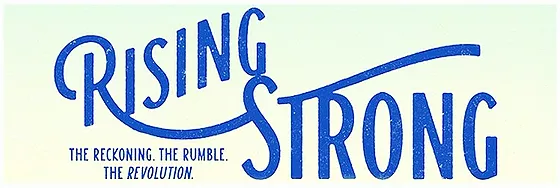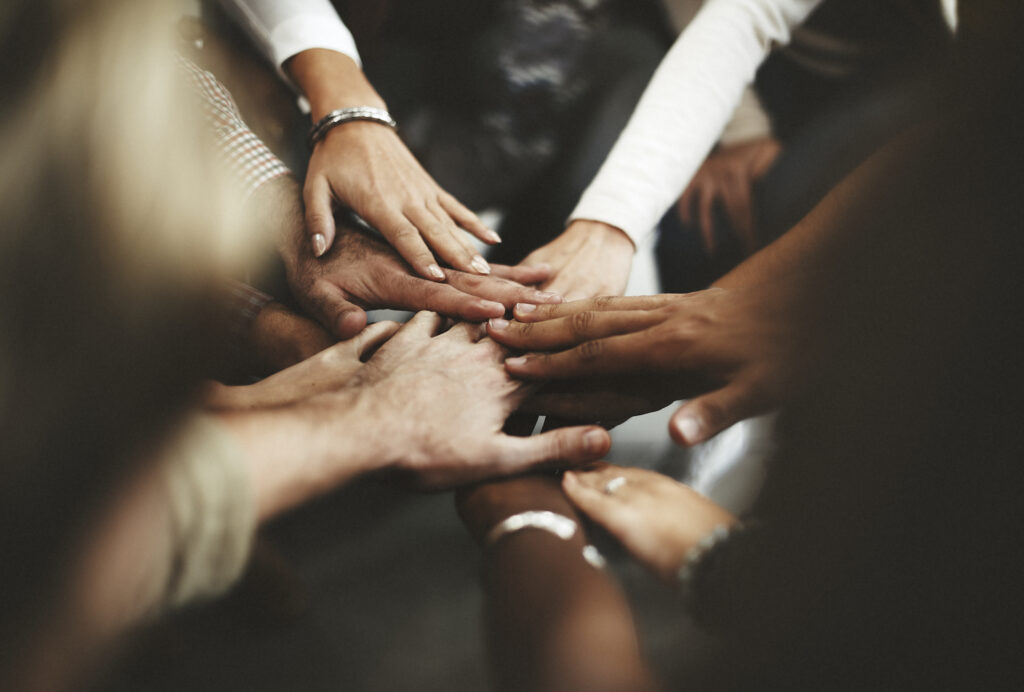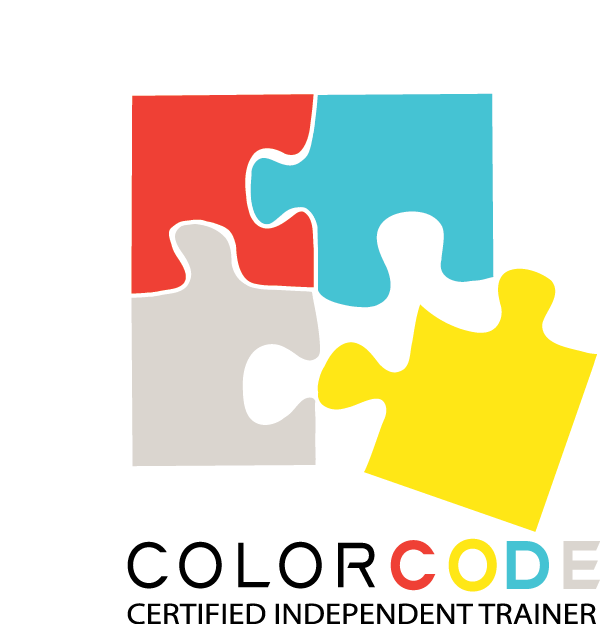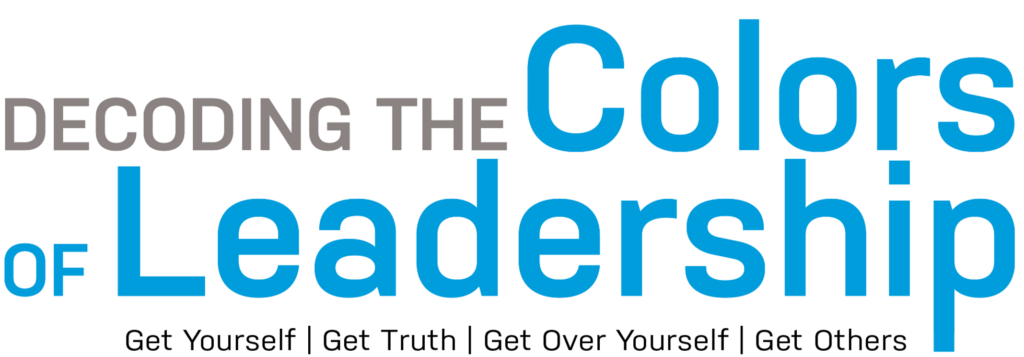Workshops
Daring Greatly™
“It is not the critic who counts. … The credit belongs to the man who is actually in the arena; whose face is marred by the dust and sweat and blood; who strives valiantly … who, at worst, if he fails, at least fails while daring greatly.” Theodore Roosevelt
This workshop is facilitated by Kimberly Malloy, CDWF, LMFT and based in the research of Dr. Brené Brown. It examines the thoughts, emotions and behaviors that are holding us back from being our best in our families, classrooms, organizations and work groups, while focusing on the development of shame resilience skills, and the daily practices of individuals that transform the way we live, love and lead.

Rising Strong™

Reckon and rumble with your story until you come to a place of truth. Rising Strong™ after a fall is how we cultivate wholeheartedness. While organizations and individuals may have times of struggle, regardless of the scope of the challenge, the process of Rising Strong™ remains the same.
Rising Strong is a book written by Dr. Brené Brown based in her research. Kimberly Malloy, is a Certified Daring Way Facilitator and a licensed Marriage & Family Therapist and will facilitate the program.
Learn to look with “curiosity” instead of judgement. Discover how your perceptions and reactions impact your feelings and behaviors. Understand how the values of the organization and those of other individuals influences how the organization functions.
Dare to Lead™
Based on the book by renowned author and researcher, Dr. Brené Brown, Dare To Lead™ challenges common myths about workplace culture. The program, facilitated by Kimberly Malloy, CDTLF & LMFT, emphasizes the importance of vulnerability, values, trust and resilience, while identifying the characteristics of daring leaders and armored leaders.
This program can be designed for individual leaders, groups of leaders, up-and-coming leaders, teams or the entire organization and can transform how those organizations communicate.
Brave leaders and courageous cultures can be shaped by rumbling with vulnerability, living into our values, braving trust, and learning to rise.

Understanding Your Personality in Conflict

This 3-hour class will offer participants to take an in-depth view of the driving core motive in their personality, increase their self- awareness, learn about and implement Emotional Intelligence, and examine their tendency to react or respond in conflict. We are not created exactly alike and therefore at times conflict arises, even when we have clean motives. Conflict doesn’t have to increase anxiety, instead we will take the perspective that conflict is an opportunity to create deeper understanding and connection with others.
This will be highly interactive course with many opportunities to improve how we communicate and handle conflict. Do we go into conflict head-first, avoid it at all costs, say what we feel and then feel guilty, or make a joke in heated discussions? Do we handle conflict differently with people that we know, in competitive situations, or when we are in a leadership position? Are we clear in our communication? We will also explore our anger cycle and see where it can be interrupted.
Participants will be asked to take the Color Code™ personality profile to help identify their own motivations. In this class participants will learn to comprehend the four motive-based, Color Code™ Personality Types; discover how to inspire and lead others by effectively “speaking their personality language;” increase self-awareness and gain other Emotional Intelligence related insights to help improve interactions; learn how to understand, accept, and interact with others more readily; gain self-awareness communicating in different situations; develop a plan for improvement when in conflict; and communicate with more clarity and kindness.
Emotions & Healthy Relationships
Ideally, this course is completed over a 6–8-week period in 2 hour sessions to give participants time to fully understand and apply what they learn each week in the workplace and their personal life. It is a set of 6-8 skills sets that start with a general foundation on the importance of self-awareness and what emotional health looks like. We will extend our knowledge beyond the five most common emotions people are aware of and grow our emotion vocabulary by at least 20-50 words. Participants will expand their emotional literacy, learn to accurately acknowledge their emotions, develop self-regulating skills, and walk away with ideas for how to manage emotions that will lead to healthier relationships in life and work.
We define the wide variety of boundaries and the important role boundaries play in healthy relationships. We will explore our ANTS (automatic negative thoughts) and put together a plan to challenge them before acting. Participants will take a personality profile and explore the different motives, needs, wants and behaviors of four personality styles. Families of origin will be discussed as well as how neuroscience is giving us the hope that just because everyone in our family has this trait doesn’t mean we will have it or be unable to change it. Healthy conflict tools will also be discussed and role modeled. Lastly, we will talk about heathy habits for communicating in relationships, including Dr. Gottman’s 4 Horsemen, (criticism, defensiveness, stonewalling and contempt) and how quickly they can destroy relationships.
So many challenges come at us every day. This course will create the tools needed to manage emotions and build a “positive intent.” In the process we will observe patterns of communication in the work place and at home, understand how our family of origin has shaped our reactions and even how unresolved trauma may be interfering with showing up as our best self.

Trauma Informed Care & Resilience

This course will look at what trauma is, different types of traumas and the impact that it has on our body, mind, and soul. We are all going through trauma and as a result our Window of Tolerance™ between the time we are triggered by a stimulus and the time we react is becoming smaller and smaller, resulting in more avoidable hostile interactions. In this class we will look at the predictive nature of our brain and how neuroscience is changing what we thought we knew. We will offer a simple framework for looking at trauma, offer various tools intended to challenge our thinking, and change our own trauma responses, allowing us to lean into curiosity.
We will address ACE’s and PCE’s to help us recognize and respond to the effects of all types of trauma.
How to Build/Rebuild Trust
Everyone has done something that has destroyed trust in a relationship, be it at work or at home. The statement “I can’t trust you” or “I can’t even trust myself” is hard to say but is it absolutely true?.
This course will take a look at the seven activities we can work on to rebuild the trust we have in others and with ourselves. Trust is only a 5-letter word, but it impacts every facet of our life and especially those we are in relationship with whether it is professional or personal. Without trust it is challenging to have authentic, vulnerable connections. We will break down trust into a set of measurable and definable attributes, and we will evaluate the most important relationship we have and develop an action plan. This will be focused on Brené Brown’s acronym BRAVING™ which helps break down trust into observable, measurable and defined behaviors. Boundaries, Reliability, Accountability, Vault, Integrity, Non-Judgment and Generosity. Anytime we can be on the same page and communicate with understanding helps our trust grow and deepens relationships.

Finding and Keeping our Pockets Full of Joy

“We cannot cure the world of sorrows, but we can choose to live in joy.” Joseph Campbell
These past two years have been filled with disappointment, anxiety and frustration. As a result, many of us have become skilled in “dress rehearsing” for tragedy while waiting for the other shoe to drop. But a new season is approaching and with it the perfect time to make healthy changes for our emotional and mental health. It’s time to grow gratitude as a way of life!
This workshop focuses on beliefs and patterns that keep us from choosing and keeping joy. We will identify what is robbing us of joy and find ways to live in our values while using creativity to create more joy in our lives. It includes the importance of spring cleaning the mind to improve our thoughts, attitudes, actions and speech. Attendees walk away with techniques and methods to keep our pockets full of joy instead of distress.
Curiosity Starts Here
We are all experiencing trauma at one level or another and our trauma response can look different in everyone.
In this either 2 hour or 6 hour trauma class we will look at what defines trauma, (individually & collectively), the impact it has on our body, mind and spirit and how to recognize and address our own triggers and help those who are struggling. We will look at how the body stores trauma and how our predicting brain keeps us safe, or does it? The ACE (Adverse Childhood Experience) and PCE (Positive Childhood Experience) will be briefly explained to understand the correlation between childhood trauma and adult physical and mental/emotional health.
Lastly, we will look at how family and the community play a big role in healing trauma we see and what we don’t see and how resiliency is built. Our goal is to have you walk away with a greater understanding of trauma and have tools to help us heal one another.

The Color Code ™ Interpersonal Skills Seminar

- Life can be puzzling. People can be puzzling. But above all, your relationships can be most puzzling. Let’s face it – all life is about relationships: personally, professionally, and socially. Every relationship begins with YOU.
The Color Code™ is a personality profile that helps participants determine their core motive. Do you really understand why you think and behave as you do? Imagine the power of truly knowing yourself, what motivates you, and how you impact the relationships in your life. The Color Code™ focuses on core motives as a more accurate way to understand someone than simply by observing their behaviors. This class is a fun and engaging course!
Upon completion of this course, you will have skills to help you improve relationships with others, relate more effectively with people, improve your communication skills, increase your work/professional performance, and enhance your personal life.
The Color Code™ is the most revolutionary and accurate measurement of your personality available on the market today. Once you have learned the Color Code™, you will never see yourself or others the same again! The Color Code™ is your best bet for understanding how to make sense out of life’s relationship puzzles.
- Section 1 – The Foundation: What’s your core motive? Learn your driving core motive to better understand your unique personality and that of others.
- Section 2 – The Structure: The four personality types. Strengths and limitations of the four personality types are reviewed. How personalities work under different conditions, and methods for relating more effectively with others are discussed.
- Section 3 – Creating Collaboration: Interacting with others. The skills and strategies learned in Sections 1 and 2 are experienced through application.
Decoding the Colors of Leadership
This class helps us take the next step with our Color Code knowledge in helping us to apply it to ourselves and to those we work with. It is a combination of building additional self-awareness and beginning to develop character.
For those of you familiar with The Character Code, which was written as a follow up to The Color Code, this course serves as a bridge from the Color Code into the beginning stages of the Character Code. At the beginning of this course, we will discuss what makes leaders successful and then we will work through the following four-step process:

- Get Yourself – We will begin with a short Color Code review
- Get Truth – Here, we will start to look at some of our current habits, in terms of strengths and limitations.
- Get Over Yourself – In this section, we will look for opportunities to help with our own growth and development.
- Get Others – This is where we work on applying what we are learning in our leadership opportunities.
Communication Skills
Everyone wants the chance to speak and be heard. The problem is that we are often preparing in our head what we are going to say next, and we don’t hear what the other person has said. In this 3-hour course, we will discuss and develop an action plan to improve our verbal and non-verbal communication, our listening skills, our ability to be curious and ask questions, how to validate others, and the importance of observing and labeling without interpreting. We will discuss the difference between dirty and clean motives and what it means to have positive intentions and generosity towards others. We will also help participants get clear on setting and managing expectations and boundaries and giving and receiving feedback.
Grief
This 2-hour mini course will help participants gain a better understanding of the various ways people grieve and how to support those who are grieving. We have likely all heard of the denial, shock, anger, bargaining and accepting stages of grief, but is that still relevant with all of the grief happening around us? We will define grief and the impact it has on our body, mind and soul, including our emotional and mental health. We will also discuss the recent addition of David Kessler’s “Finding Meaning” stage and how it can lead to healing.
Setting Your Personal & Company Values
“Curiosity in the chaos keeps us aligned with our values.” – Kimberly Malloy
Many companies proudly display their core values on the walls, but they don’t take the next step to operationalize those values. In this 3- to 8-hour course, participants will select their individual core values, define them, and attach meaning to them. This attachment of meaning creates awareness on when we are not in alignment with our values and how we can stay true to them. We will discuss how this formula can be applied when establishing the company’s values and how they will be communicated and measured, as well as the accountability of values for employees.
